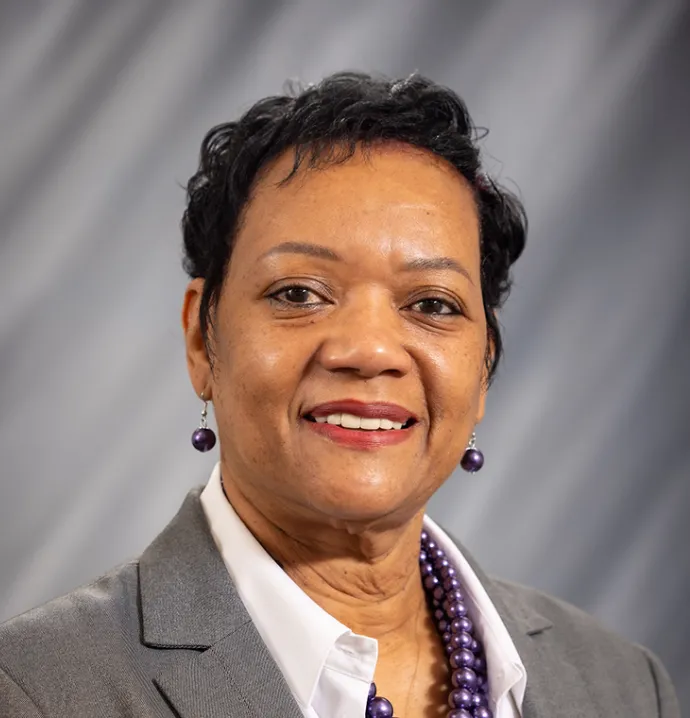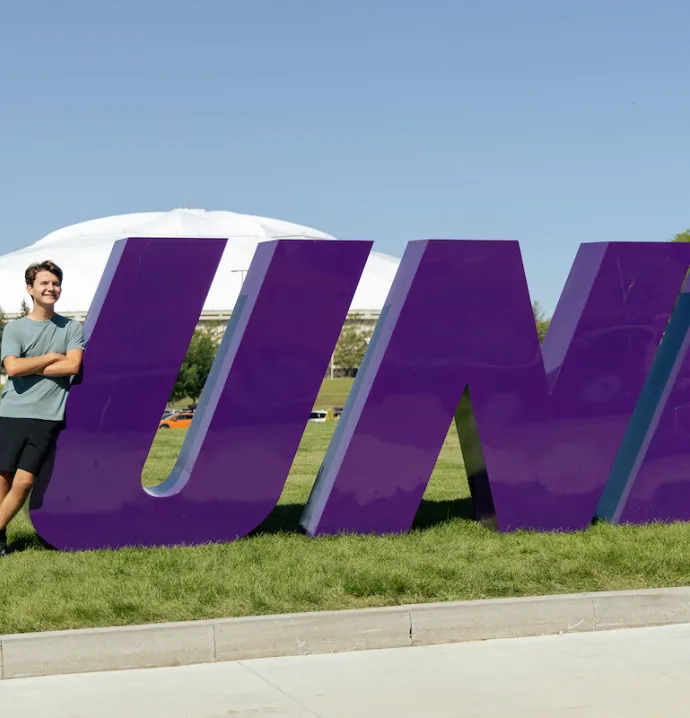UNI helps manufacture Cedar Valley's pandemic response
UNI helps manufacture Cedar Valley's pandemic response
Facing a dire shortage of protective gear for healthcare workers, hospitals in Iowa and across the country have turned to their communities for assistance. In the Cedar Valley, the University of Northern Iowa is helping answer that call.
Plastic face shields for medical workers are being made on 3D printers in UNI’s Additive Manufacturing Center (AMC). The chemistry, biology and physics departments collected spare personal protective equipment last week, donating some 500 items including goggles, face shields and lab coats along with thousands of exam gloves. And theater students this week will begin sewing protective masks they hope will help keep workers in nursing homes safe.
“It’s something really special,” said Jerry Thiel, director of the AMC where students are helping print and assemble masks. “There’s been an outpouring at the university - everyone is chipping in. We’re hearing from everyone ‘we want to be involved, we want to help.’”
The volunteer efforts stretch across campus. Faculty and students who are taking part say with all the grim news about the pandemic and being self-quarantined at home has left them eager to find a way to make a difference.
“I really appreciate the nurses and doctors still going to work - they’re putting themselves on the front lines,” said Aleah Vaske, a UNI student double-majoring in management and marketing who has started sewing protective masks at home for her hometown hospital. “They’re always thinking about other people. This is the best thing I can do at this difficult time.”
The need is great. A survey last week by the United Conference of Mayors found that 90 percent of cities in the US reported having a shortage of face shields and other personal protective equipment (PPE). Millions of face masks and other equipment are needed to make up the shortfall, the conference found.
UNI is not only producing protective equipment but also helping coordinate with other public and private institutions in Iowa with 3D printers that can be put to use, Thiel said. “We are proud to have a role not only in printing face shields, but in helping to pull the community together to serve the healthcare providers who are bravely serving the Cedar Valley during the coronavirus pandemic," said assistant to the president for board and governmental relations Andrew Morse, who coordinated the face shield printing effort.
Thiel said perhaps 100 of the face shields will be made and assembled at UNI as the AMC is set up to develop prototypes, not mass-produce objects. The shields UNI and others are producing are based on a design from the University of Iowa’s Protolabs, he said.
Even the UNI Bookstore is taking part. Protective goggles are also hard to come by so the bookstore is selling its entire allotment - some 5,000 goggles - at cost to local healthcare providers MercyOne and UnityPoint Health, said UNI’s risk management director Joseph Rayzor, who also helped coordinate the collection of PPE.
“We were just completely ecstatic to receive it,” said Anesa Kajtazovic, a development director at UnityPoint Health’s Allen Hospital. “UNI has been so generous to our hospital and just been an extra helping hand to make sure we’re ready.”
This week, students and faculty from Theatre UNI will start producing face masks made from leftover fabric from theatre productions. The masks will be sent to Western Home Communities, a retirement and assisted living community in the Cedar Valley, where they will be used by medical workers and visitors.
“All theatre majors are required to take stagecraft class, and they learn to sew as part of it,” said theatre department associate professor Amy RohrBerg. “We have a whole slew of machines and fabric and supplies to make garments for the shows. We have them sitting there waiting. We have a pattern, a place to send them and students willing to work.”
Social-distancing rules will be strictly enforced, she said, with staggered shifts of one theater department faculty member and 3-4 students working more than 6 feet apart. The sewing equipment will be thoroughly sanitized after each shift, she said.
“I think the students are looking for something to do and having them participate in this provides them a chance to give back and help deal with this pandemic,” RohrBerg said. “This way, they’ll have a purpose and have a chance to say ‘when it hit UNI, here’s what we did to help.’”
Faculty feel the same. Chris Schrage, a business marketing instructor, has sewn about 75 masks - some in purple and gold - for a former student who works in an assisted care facility and another who regularly works with the public.
She’s also sewing masks for the People’s Community Health Clinic in Clarksville as well as Butler County emergency responders.
“I’ve been blessed with the talent to sew and….I’m just gonna’ do what I can to help the cause and take care of other people,” said Schrage, who last year sewed and donated 300 surgery caps for children.
UNI students are also sewing masks on their own from home. Vaske, the UNI management and marketing double major, owns a sewing machine and is using a pattern provided by her hometown Manchester Regional Medical Center to make the masks. She will then ship them to the hospital.
Vaske said she heard about the effort on social media and wanted to take part. Her roommate, a textiles and apparel major, is teaching her how to sew, knowledge that Vaske wants to use in the future for a planned custom-bra business.
“It’s one thing I can do to help,” she said.




